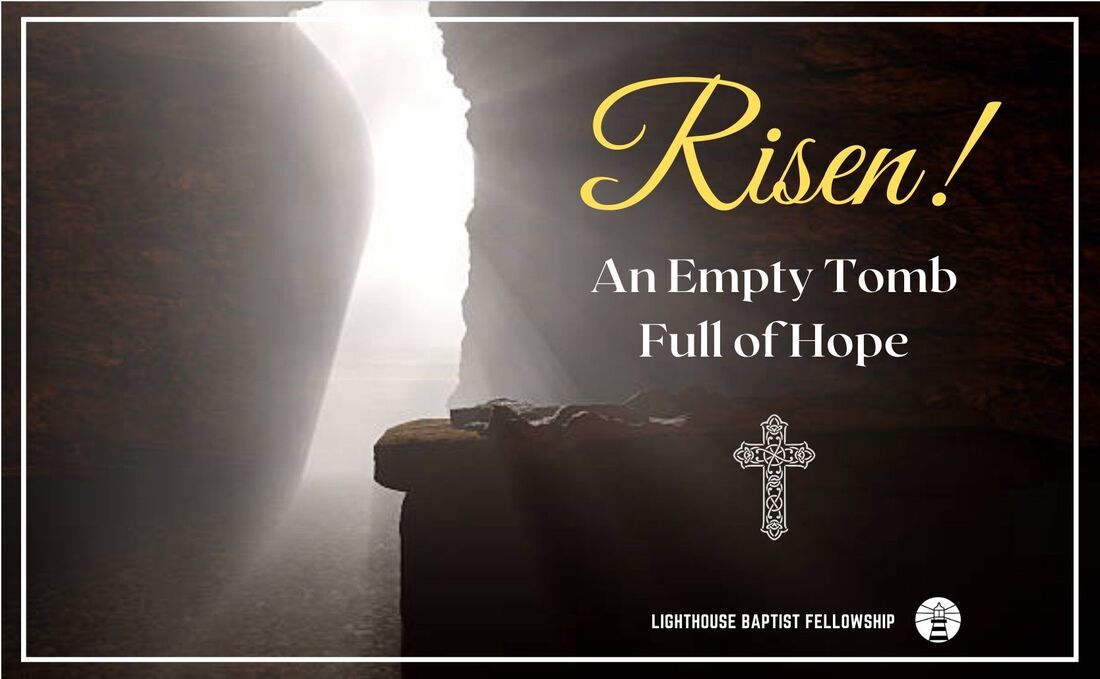|
MISSIONS MINDED over CONSUMERISTIC THINKING Our singing each Lord’s Day, rightly understood and rightly applied, fuels us for great commission ministry. The ministry of music includes an aspect of serving one another by reminding ourselves and others of big, eternal truths. The congregation instructs one another concerning the eternal truths of the gospel of Jesus and God’s Word when we sing. Colossians 1:28 instructs, “Him we proclaim, warning everyone and teaching everyone with all wisdom, that we may present everyone mature in Christ”. Matthew 5:48 requires, “You therefore must be perfect (MATURE), as your heavenly Father is perfect.” [1] Part of the way we grow and mature in Christ is by rejecting consumerism and embracing the biblical discipline of corporate worship. Members and members in process need an avenue to serve the body of Christ. This is part of what we promise to do when we covenant together in membership. Covenant membership means we serve one another rather than wait to be served. The local church is the visible representation of the universal (catholic) church. We are an outpost of God’s Kingdom, an embassy of heaven.
Practical Application Consumerism come naturally to us. In fact, it is the waters we swim in as an entire culture. Buy now, pay later! You deserve a dream vacation at a five-star resort. Credit card debt is called debtor’s prison. If we are to resist a consumeristic mindset and practice when we gather, it will be hard fought and hard won. We will not accidentally resist consumerism and unintentionally adopt a mission-minded approach. Our default by nature is to take rather than give. When we are tempted to complain about what we don’t like or not getting what we really prefer, that is a practical sign that we are thinking as a consumer. The practical question we should be asking is whether we are glorifying God through our worship. [1] Matthew 19:21 Jesus said to him, “If you would be perfect, go, sell what you possess and give to the poor, and you will have treasure in heaven; and come, follow me.” 1 Corinthians 2:6 Yet among the mature we do impart wisdom, although it is not a wisdom of this age or of the rulers of this age, who are doomed to pass away. Philippians 3:15 Let those of us who are mature think this way, and if in anything you think otherwise, God will reveal that also to you. Colossians 4:12 Epaphras, who is one of you, a servant of Christ Jesus, greets you, always struggling on your behalf in his prayers, that you may stand mature and fully assured in all the will of God. James 1:4 And let steadfastness have its full effect, that you may be perfect and complete, lacking in nothing. James 3:2 For we all stumble in many ways. And if anyone does not stumble in what he says, he is a perfect man, able also to bridle his whole body. God Centered over Man Focused
When we are truly devoted to pleasing God with our music, we begin to fade away from the center of what we worship. God becomes the object of our affections rather than our musical preferences. Too many churches cater to pleasing church members rather than moving our affections off of us and onto Christ. Without this, we nurture the sin of self-worship. The things of our preferences or demands grow strangely dim in the light of His glory and grace. The Father is seeking true worshipers to worship Him in Spirit and in truth (John 4:23). While many popular worship songs today focus on me and my desires over God and His Word, we are resolved as a church to sing music that focuses on God and His beauty. We resolve to sing music that reminds us of the eternal realities allowing the Word of Christ to dwell in us richly singing psalms and hymns and spiritual songs with thankfulness to God in our hearts (Colossians 3:16). Practical Application The songs we sing should be to worship God, celebrate who He is, magnify Him for what He has done, and focus our affections on His worthiness. We will be singing for eternity a new song. We should celebrate this reality by singing new songs now. Practically, we grow in our theology when we sing new theologically robust music. This causes us think a little deeper on the words. How many times have you sung the same songs, the same way, even in the same order, and never once thought about what you were singing? It can be a real challenge to hear a really familiar song with fresh ears. Singing music filled with Scripture moves us towards meditating richly. This is a historic practice of Christ's Church. Also, singing nationalistic songs is not wrong. In many cases and in the right setting it is very right! We should be thankful and honored to be citizens of this country. Yet, our primary identity as Christians is as sojourners briefly passing through this world. The worship gathering should focus more on who we are in Christ, not our momentary situation. Our citizenship for eternity will be in God's Kingdom with Christ's body. This is our ultimate identity and calling in Christ. Singing God centered music in God centered ways moves our affections, resolutions, and our meditation from us to God. Shout for joy to God, all the earth; sing the glory of His name; give to Him glorious praise! -Psalm 66:1-2
Identifying core values is critically important for any organization, but especially the Church of Christ Jesus. Eternity is at stake and our business is critically important, even urgent. If we do not identify our core values, we will drift towards uncertainty, indifference, disobedience. If we aim at nothing, that is the very thing we will hit ever single time. The music we sing during corporate worship is not neutral. It actively does something to us as we participate. The things we meditate on are the things that captivate our hearts. They are what we delight it. These are the things that we find worth and value in. As we identify our core values according to Scripture, they will lead us towards certainty, affection, obedience. With that in mind, here are our music ministry team's core values at Lighthouse Baptist Fellowship. Core Value 1 Congregational Worship over Concert Performance When we gather together each Lord's Day, we are doing the most important thing we do the entire week. We gather to worship the Most High God. This weekly event points to what we will be doing for all of eternity; worshiping together as the Church of Christ Jesus. One aspect of our worship is singing. Rather than guests and covenant members coming to be passively entertained each week, we resolve to pursue congregational worship. Practical Application Congregational worship is biblical in approach as this is what we will be doing for eternity. When we gather we are practicing for what we will be doing forever as the body of Christ. Conversely, consumerism is not biblical but worldly and me-centered. Special music and solos have their place for occasions outside weekly corporate worship on the Lord's Day. The can be worshipful events and God-honoring. Yet, we see a priority in Scripture of gathering together to pray, sing, meditate, actively hear the preaching of God's Word, exhort one another, and fellowship in the Spirit as one body. Our weekly practice greatly affects how we view God the Father, Son, and Holy Spirit, the church, man, the gospel, praise/worship, and many other things. Is there pressure or an expectation to clap when someone in the service were to give a performance? Is it rude not to give applause in such a situation? Performances shift the focus from God to man. Congregational worship moves us from focusing on self to focusing of God. It also practically moves us from being consumers to those who are on mission with God. by Jamie Barrett
Garden Thief Have you read the story of Peter Rabbit? This mischievous rabbit, who also goes by Peter Cottontail, just cannot stay out of Farmer McGregor’s garden. The carrots, lettuce, and other tempting vegetables lure him in time and again. Even through McGregor’s pitchfork threatens, Peter cannot resist the temptation of triumph. Beatrix Potter created this wonderful character. Thornton Burgess borrowed Peter Rabbit to further explore the exploits of this naughty little rabbit that you cannot help but like. Peter Rabbit grows on you. You find yourself rooting for him. You are on the edge of your seat hoping that he gets away from the looming danger one more time. If caught, he will end up in the pot and on McGregor’s dinner plate. Trespassing The trespasses of Peter Rabbit are tallied up by the enraged farmer. He wants nothing more than to get his hands on the rabbit and end the garden thief's existence. I think we root for Peter Rabbit because we too have been in perilous predicaments choosing to trespass over and over. The danger of trespassing dwindles as the risk of reward becomes irresistible. Like Peter Rabbit, who cannot stay out of Farmer McGregor’s garden, we go back to the temptations and danger of sin. Forgiveness Trespassers need forgiveness. This is especially true when the consequence for trespassing is eternal wrath poured out in full strength forever. Yet, the sweetness of forgiveness is extended to you freely in Christ. God never turns anyone away to my utter amazement! Like Peter Rabbit who steals vegetables, we are glory thieves trespassing on the forbidden grounds of sin and rebellion. The good news is that God is far more kind than Mr. McGregor. And that kindness is found in Christ.  by Jamie Barrett Gospel Narrative
It is important to recognize that Mark 16:1-8 is a story written in the format of a gospel narrative. This text is only one of the accounts recorded in the four gospels. It is not a fairytale or a legend or mythical folklore. It is a detailed account told from Mark’s perspective. The death of Jesus is essential. The burial of our Lord is monumental. Yet, the resurrection of Christ is the most important event in history, the pinnacle of all events. An Exclusive Claim No other religion in the world proclaims anything close to the glorious and pivotal doctrine of the bodily resurrection for their leader. Muhammad died, as did Moses. Confucius and Buddha are dead. Joseph Smith is gone along with Krishna. It is unique to Christianity. This strictly Christian teaching is not only about Jesus rising from the grave and conquering death, but also about the bride of Christ united to Him by faith rising bodily from the dead. The triumph of Jesus will be shared with all of the saints. Storytelling Mark 16:1-8 comes in the form of a narrative. Every culture in the world is drawn to storytelling. There is just something fascinating about stories that draws us in, resonates within, and communicates deep truths in no other way. God has orchestrated a story masterpiece in arranging the narrative of Scripture. Three different languages, over thousands of years, with many authors. Every genre in human language is employed to communicate the one story of Scripture. The Promised Savior The story begins astonishingly with God speaking and the entire creation emerges. The movements follow the general categories of creation, fall, redemption, and recreation. All through the story, the name of Jesus is hinted at signaling a coming Messiah. The promise of a Savior comes in the early pages of Scripture in Genesis 3:15. This text is called the “first gospel”, being the earliest whispers of the coming Messiah. Great Expectations Humanity has plunged into death and sin, sickness and suffering, curse and consquences. The Messiah is born in a forgotten town in less than socially ideal circumstances during the Roman occupation. Hope of a national comeback was intensifying. The people of Israel were hoping for the Messiah to come. But what they got was not what they were expecting. In great confusion, the people wondered aloud, “could this be the Christ?” Some said yes while most others said definitely not! Execution There is no doubt about it, Jesus turned heads and became the talk of town wherever He went. He spent a few years in humble ministry with mostly commoners and a few brief encounters with the high class. The big cats in charge grew weary of Him and came up with a plan to dispose of Him. He kept getting in the way of their ruling, they had no time to mess with potential rivals. They killed him, though innocent, and got rid of that nobody who people were thinking was somebody. They loved walking in darkness and death rather than in the daytime in righteousness. The God Man As it turned out, He was actually the author of life who holds all substance of the created order together by the power of his word. He was the very agent in which God spoke the world into existence. The third day in accord with the Scriptures the grave could not hold Him. Death could not defeat Him. He rose victoriously as the victorious King just as He said he would. He ascended into heaven to sit at the right hand of the Father. He intercedes, even now, for His saints, His bride, His church. The story concludes by revealing that Jesus is coming back as a fierce warrior who speaks and the wicked are undone. He ushers His bride into the most magnificent party that has ever and will ever be. This celebration continues on into eternity where we will worship the Lamb of God slain from the foundation of the earth. Soul Stirring Stories This, my brothers and sisters, is the power of narrative. Stories of any substance follows the same pattern. They stir our souls and resonate in our affections. These are the stories that get our attention because they mirror the story we long to hear. The gospel story is relevant to humanity. This story is excellent news to boys and girl, men and women of every nation, tribe, people, and language. This story is for you and for me. by Jamie Barrett
Discerning Our Value Each of us want to be someone of worth. We look for praise in some area of our lives in which we believe we can shine. I think about the Marvel movies and the quest for significance and worth. Each of the characters are pursuing what they believe will matter the most in the end. A series of decisions that lead to the best possible outcomes. I particularly think of Thor. His very ability to wield Mjölnir is based on whether he is worthy. Found unworthy, he forfeits the chance to carry this magnificent war mallet. There comes a point in the series that the demigod is stripped of his armor, sent to earth, and found unfit to take up his hammer. Now he is vulnerable, apparently weak. I imagine each of us experience something like this. When our ultimate worth is found in anything outside of our Maker and centered on our performance, our value varies. Marvel depicts this Norse superhero finding his ultimate worth in his own willingness to sacrifice himself for the good of others. You see, the Bible says that in Christ we have infinite value as royal sons and daughters of the King because of His sacrifice for us. He is the main actor in this story. We have been bought by the blood of Jesus and ransomed from the wrath of the Father. This is the ultimate template to discern our true worth and discover an enduring hope. This is the good news of the Gospel of Jesus that decimates any false gospel that aims to compete. The truth of the matter is that all false gospels pale in comparison. Only the blinding brilliance of the biblical gospel points to unlimited worth found in Christ alone. Image Bearers As creatures made in the image of God, we look like Him in remarkable ways. Part of the lie of the Serpent in the Garden of Eden was that Adam and Eve were not designed to be like God from their inception. They believed there was something they had to do to become like Him, as the lie suggested. Their eminent worth as image bearers was unrecognized, dismissed. Their focus moved from what God had already done in fashioning them in His likeness to what they must do to get what they wanted. Their desire to be like God was a good desire, something God had already done. Their good desire shifted to a sinful craving when they believed they could get what God already gave them, without God’s involvement, and against His command. Our first parents diminished the image of God in them through the fall, marring it significantly for all who would come after. It is only union with Christ that takes the image of God tainted and twisted by the fall and perfectly restores it in us once again. Identity and Calling We each live our lives with a mix of conscious and unconscious realizations of who we are. This distinctive identity is what propels us in making every decision of life. Our resolutions, thoughts, and affections of our heart is what drives our words and actions. To say it another way, what we believe about our identity directly affects how we view our calling. Providing a negative perspective, if we believe we are worthless, we will not pursue a spouse who is “out of our league”. If we really believe we are incompetent, we will refuse to interview for a job outside of our training or experience. We will play it safe. If we believe we are unintelligent, further training or robust preparation is out of the question. Why waste the time, effort, or money? From a positive perspective, if we believe we are able to complete a building project we have never attempted, we will secure the plans, gather the materials, and start the build. If we believe we have infinite value in Christ, we will refuse to settle for the temporary pleasures of sin and will choose obedience. If we believe that God has infinite affection and love for us, we will want to please Him and seek His glory when things are hard or come easy. What we believe about our identity directly affects our destiny. A Continual Search There is a pursuit of worth for each of us. We either regularly forget or don’t know that we have infinite worth when we belong to Christ. Every time a drug addict turns to her substances, she is looking for meaning and worth that cannot fulfill. When she comes off her high, the subject of worth and worthlessness comes cascading in like an avalanche. The child looking for praise from his father is looking for something deeper. Now an adult making over six figures with a beautiful family and home, he continues his relentless search. His successes in life pales compared to pursuing the praise of his dad. Yet the dad’s praise is not what he is ultimately looking for. Though important, we each need something deeper than our parents’ approval. The woman at the well in John 4 was looking for worth in relationships. She never found it because she was focused on the wrong thing. Though good, relationships can never fulfill us in the end. Jesus clarified that her deeper thirst was for Him. Yet she never realized it until that moment. I imagine that woman was tempted, like each of us, to look for her worth outside of Christ after that momentous occasion. As Christians, we forget our identity and our calling far too often. We continually endure cases of spiritual amnesia. We live as practical atheists forgetting that God even exists. We overlook the deep truths of our legacy. Justification by faith becomes, to put it mildly, tedious. We persist in our pursuit for worth outside the infinite value we already have as people united to Christ. Uncommon Community The Bible portrays the church as the people who have a special identity. We forget we are royal heirs of Christ, sons and daughters of the Most High King. Therefore, we regularly gather to be reminded of these deep truths. We gather not just in a particular building on a particular day. We gather in homes, parks, neighborhoods, restaurants, coffee shops, at enjoyable events, helping each other with home projects, and out in nature. We grow uncommon community by seeking each other out between services deepening friendships during the week. We show one another the incredible reality of the gospel of Jesus in the midst of misunderstanding. We have hard, uncomfortable conversations. We wrestle deeply with what God has done for us in Christ and the person and character of God. We explore ways to bless and serve others. Because Jesus is our peace, we have the freedom to live as peacemakers. Our lives have the potential to powerfully demonstrate who we are positionally in Christ each day. Our marriages showcase the gospel of Jesus, a living portrayal, by men and women regularly remembering their covenant of companionship. We are reminded of the gospel of Jesus when we seek out counsel by other godly church members. We read the Bible together, meditating deeply on the word of truth. Our homes, though desperately imperfect, become platforms for the gospel when we live out the truths of Scripture, the living Word. But the flaws highlight what gives us our ultimate value and enduring hope. Jesus. The shortcomings reveal our thirst and need for Him as we are reminded often in uncommon community. We already possess unimaginable worth because of what Jesus has done for us and who He is living inside us. This is a worthy truth to celebrate and remind one another regularly. Are you worthy? In Christ, the gospel of Jesus says you are of infinite worth. by Jamie Barrett
Finding Creative Avenues If you are like me, you have run into the challenge of sharing the gospel with others. Evangelism can be a formidable task that leaves us feeling scared and often guilty. Just mentioning the word evangelism may be intimidating. Few other topics leave a Christian feeling guilty and exposed. If you are fearful of talking to others about your faith, that is a good sign! That shows how big this is to you. You should see this as encouragement that you are not equipped for this tremendous task by yourself. You need God's Spirit working in your powerfully. You may have a desire to witness but don’t feel ready. You may have talked yourself out of witnessing, then felt ashamed. You might be asking yourself, “how do I get started?” I want to encourage you with a few creative pathways for evangelism that are natural, inviting, and winsome. Additionally, I hope you come up with some creative ways of your own to engage in delightful gospel talk. Opportunities All Around Us Barriers to witnessing are common for Christians who want to be obedient to the Great Commission. One of the big hurdles of witnessing is moving from asking God to give us opportunities to sharing our faith. Instead, we should ask to be sensitive to the opportunities all around us. When we look around, we can identify many ways to engage others with the gospel that you we regularly each week, maybe daily. These are relationships that may lead to gospel conversations. Begin by praying for people by name who you interact with on a regular basis. This may be the teller at the bank, the gas station worker, the person who picks up your garbage, the person who delivers your mail, a coworker, or a neighbor. When you get groceries, avoid the self-checkout line and take extra time to interact with the cashier. If you eat out, get to know the server or person taking your order at the counter. If you have a delivery person who comes to your home or business, leave them some snacks with a note. Try to engage them briefly since they are on a tight schedule. As your relationship develops, invite them to an event or as your guest for worship at your home church. Take genuine interest in people. You might find them responding with appreciation and reciprocation. Speaking of Jesus Relationships can stay on the surface without ever progressing to the subject of Jesus. There are a great number of ways to transition to gospel talk that are natural and comfortable. The more you use these transitions, the more natural they will come. Consider Jesus speaking to the woman at the well in John 4. He asked the Samaritan woman for a drink of water. He used provocative statements that moved the conversation along. He was thirsty and longed for actual water. He used his physical thirst to point to her deepest desires. Her pursuit of men leading to several failed relationships was an opportunity for Jesus to reveal what she was pursuing. We can do the same thing in loving, creative ways. It requires a posture of great humility and the love of Jesus flowing through us. People all around us have an insatiable desire for God that they try to fill up with things of this world. Only Jesus can fill our deepest of longings. Take a Shot Former professional NHL hockey player, Wayne Gretzky, quipped, “You miss 100 percent of the shots you don’t take”. Evangelism is like taking a shot while not knowing if your effort will fail or suceed. Take a shot and see what the Lord can do with your faithfulness. Remember, the Lord doesn’t need you. Yet He chooses to use our faithfulness for His glory! That is always a great encouragement to me when I witness. What Do You Think About Jesus? This is a question that cuts right to the chase. Maybe you have trouble getting over the hump in a conversation. You might be in a waiting room, airplane, bus, train, or enduring a long line. This is a great thing to ask people when you have small window of time with someone. It is also a good question to ask those you have known for some time, yet never broached the subject. Either way, most people have an idea of who Jesus is and developed certain thoughts about Him. They may quickly turn the question around on you. That gives you an excellent opportunity to provide the answer you have been preparing. Ask someone this week what they think about Jesus. I would be pleased if you let me know how they respond. Pray Before you open your mouth, pray for God to direct your steps. Ask for the words to speak. Just before Nehemiah presented his request to King Artaxerxes to rebuild the walls around Jerusalem, the cupbearer to the king offered a quick prayer (Nehemiah 2:4). Likewise, learn to give quick prayers in gospel talk situations. Request the Lord to help you recall verses you have intentionally memorized beforehand. Pray for favor with the people you plan to engage with the gospel. Ask that the Lord would remove obstacles in the persons mind that might block receptivity. Pray that the enemy’s work would be hindered. Share the good news of what Jesus has done in a winsome, personal manner. Then ask for the seed you have sown to grow up to maturity and produce fruit. We are not finished with evangelism just because the dialogue has ended. Prayer plays a crucial role in witnessing as we look to God to do a miracle in the lives of people we encounter. Leave it In God's Hands You have done everything you can. At this point, you are like the farmer who has prepared the soil, planted the seed, and watered. The farmer does not stay up all night. The farmer goes to sleep knowing that he can do nothing more. Now it is time for you to leave the results of your labor to God. He can use your efforts to do whatever He wants. It is an act of worship as we watch and see the increase He provides through our faithfulness. God is always the main actor when we engage in gospel talk. by Jamie Barrett
What is a Confession? If someone asked you what your church believes and teaches, what would you say in response? How much of what you believe would you tell? What are the non-negotiables? How much time would you invest in giving your answer? We as Baptists, specifically Southern Baptists, believe certain truths that not all traditions hold in common. For example, we baptize believers by immersion after a public profession of faith in Jesus. A confession is a succinct way to respond to anyone who might ask what you believe. Additionally, a confession is a concise way to teach the membership of our church what we believe. At Lighthouse Baptist Fellowship, we have adopted the Baptist Faith and Message 2000 that briefly answers the question of what we believe as Southern Baptists in cooperation with the Southern Baptist Convention. It is important that not only prospective members be familiar with our confession, but also that each of our members are well acquainted with this important document. It is important that we study each article of our confession and look closely at the Scripture references that support each section. Is a Confession Authoritative? A confession has no authority over Scripture. Rather, a confession captures what we believe God has already said in the Bible. If a confession cannot be clearly defended by Scripture, the confession must be abandoned or undergo necessary revisions. We believe that the Bible in all 66 books of the Old and New Testament are authoritative over the body of Christ. The local and universal church adheres to God's Word without compromise or revision. To depart from Scripture is to depart from existing as Christ's Church. A confession maintains absolutely zero authority on its own. A confession points to the authority of Scripture. Creeds and Confessions Creed comes from the Latin word credo, meaning I belief or I trust. When we say what we believe or trust in, we are declaring our creed. A confession is what we confess we believe as followers of Jesus Christ. Creeds and confessions are used interchangeably to concisely express what we believe. A Brief History of Baptist Confessions The church has sought to clarify what we believe through confessions for a considerable time. The Baptist Confession of Faith was first drafted in 1644 in London, England. It was agreed that the confession needed a revision, so they revised it in 1689 in London to create the Second London Baptist Confession. Baptists in United States wrote the Philadelphia Baptist Confession in 1742 and the New Hampshire Confession of Faith in 1833. The Southern Baptist Theological Seminary drafted the Abstract of Principles that every professor was required to align with and sign. Each Baptist minister was free to create his own confession or to adopt either the Philadelphia or New Hampshire confession. The Baptist Faith and Message (BFM) was developed to provide accountability to the Foreign Mission Board. The BFM also helped provide more assurance of orthodox doctrinal distinctions with both the sending churches and the missionaries being sent abroad. The confession has undergone two revisions. The confession was originally composed in 1925. The first revision came in 1963 and the second revision came in 2000. We Have No Creed but the Bible! Whoever first made this bold declaration, and anyone who repeats it, is unwittingly asserting a creed. Doctrinal orthodoxy lost popularity as the liberal (moderate) agenda took control of the SBC. However, in recent decades the SBC has undergone a conservative resurgence that has changed not only the landscape of the seminaries, but also local Baptist churches. The perspective is changing to what it was with our SBC founders. However, no creed, confession, or council has authority over Scripture nor should they include anything outside the bounds of Scripture. If any of these are found to be in lack of conformity to Scripture, they must be rejected. They are to be considered heterodoxy, not orthodoxy. An example of this is the Vatican I and Vatican II. The Roman Catholic church departed from orthodoxy and elevated creeds, confessions, and councils over Scripture. They inappropriately exalted the position of Pope and Tradition as superior to Scripture. As Christians, we wholesale reject this notion. However, we still hold to orthodox creeds such as the Apostle’s Creed and the Nicene Creed. Baptists: Confessional from the Beginning From the very beginning of our existence in the U.S., Baptists, especially Southern Baptists, have seen the urgency of adopting a confession for each autonomous church that accurately summarizes what we believe. The founders of the SBC were vigilant to preserve doctrinal orthodoxy both in the seminaries and in the churches. Through the years and the shifting landscape of the denomination the SBC has made a great deal of progress in preserving our doctrinal distinctions through the conservative resurgence. We can look back and see a clear pattern of faithfulness to our denomination’s distinctives. This is due to the confessions that have pointed us back to the supremacy of Scripture. The fact that Southern Baptists have been confessional from the beginning is a wonderful blessing to embrace. by Jamie Barrett
Engaging Takes Effort It is an understatement to say that actively engaging a sermon takes effort. It is easy for any of us to get into a rut of showing up for corporate worship and going through the motions. Listening to sermons in a meaningful way does not come naturally. We are conditioned by our culture to expect things to come easy. Yet, the Word of God expects that we will train ourselves for the purpose of godliness in1 Timothy 4:7. In order to do this, we must expend some holy sweat as we sit under the preaching of God’s Word. Here are twelve ways to expectantly engage a sermon on the Lord’s Day that will provide growth and encouragement while benefiting the whole church. Consider printing the list out and reviewing it often. Add to the list in order to interact with sermons in a refreshing, exciting way. Twelve Ways to Engage
Abbreviated List
The Power of Curiosity A curious mind is a powerful thing. This is especially true as it pertains to searching out the truths of Scripture. What we once viewed as dull and uninteresting becomes alive and invigorating. Consider bringing another translation of the Bible into your personal study. This helps you see a wider range of meaning of words and phrases. No one translation gets it perfectly right every time. In your sermon notes, ask some penetrating questions that lead to exploration. A curious mind will see the value in the time and effort spent in investigation. You might ask your pastor how he develops his sermons each week. Consider the process your pastor goes through to bake the fresh bread each week. Exploring this process could lead to new ways to grow your curiosity during the week in preparation for the upcoming sermon. Pursue these few options and come up with a few of your own. I believe your curiosity for God’s Word will flourish! What Do You Expect? Is your Bible living and active? Do you expect the Word of God to do something powerful as you encounter it each Lord’s Day? Have you grown bored with sermons? Hebrews 4:12 says, “For the word of God is living and active, sharper than any two-edged sword, piercing to the division of soul and of spirit, of joints and of marrow, and discerning the thoughts and intentions of the heart”. Depending on your perspective, this could be very scary or greatly encouraging. God’s Word discerns the thoughts and intentions of your heart. Isaiah 55:11 declares, “so shall my word be that goes out from my mouth; it shall not return to me empty, but it shall accomplish that which I purpose, and shall succeed in the thing for which I sent it”. It has been declared, “this book will keep you from sin or sin will keep you from this book”. Approach the Bible with the full knowledge that Scripture is living and active and will do something powerful. Document Discoveries Keep a journal of your discoveries and the immensely valuable treasures you find along the way in your studies. Your findings may lead you to more exciting insights as you continue mining the riches of God’s Word. You will find that you cannot possibly exhaust the depths of Scripture. What you once thought you knew may become the recognition of shallow perception masked as rote, familiar terrain. Review your journal on occasion to be reminded of the exhilarating treasures you have found. You just might receive some needed encouragement and help along the way. Create Community Take an opportunity to create community during the week. Lead a short time of family worship using the sermon text or have a church member over for coffee, tea, dessert, or a meal. Go out to lunch with another same gender member to discuss your insights. This will likely lead to a more natural means of discipleship and help your church flourish. Creating community takes initiative on our part. It most certainly does not happen without our efforts. But the efforts will be well worth the investment as we watch the Word of God thrive in biblical community. |
Author:
|








 RSS Feed
RSS Feed
